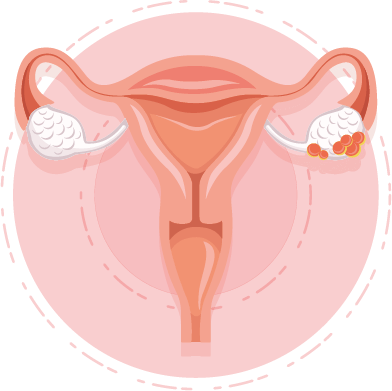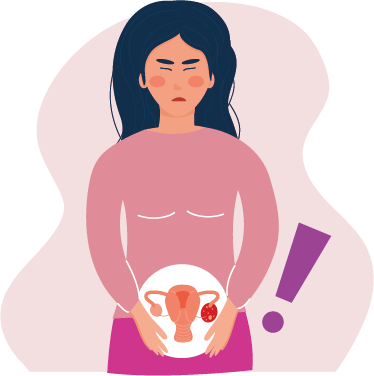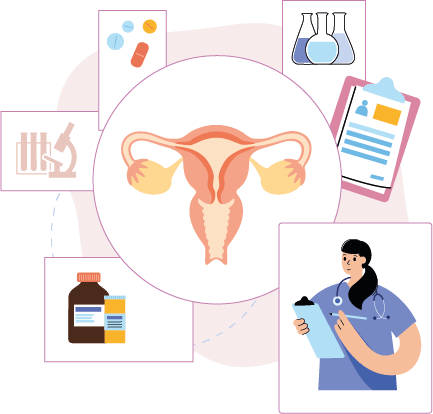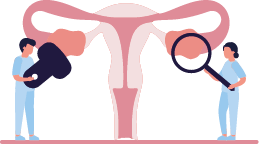PCOS - Polycystic Ovary Syndrome


Polycystic Ovary Syndrome (PCOS)
Polycystic ovary syndrome (PCOS) is a common condition that affects how a woman’s ovaries work.
The 3 main features of PCOS are:
PCOS is a problem with hormones that affects women during their childbearing years (ages 15 to 44). Between 2.2 and 26.7 percent of women in this age group have PCOS.
Many women have PCOS but don’t know it. In researches up to 70 percent of women with PCOS hadn’t been diagnosed.
PCOS affects a woman’s ovaries, the reproductive organs that produce estrogen and progesterone — hormones that regulate the menstrual cycle.

KNOW?
PCOS
1 in 5
women

Polycystic Ovary Syndrome (PCOS) Symptoms

Trouble conceiving or infertility

Mood changes

Acne

Fatigue

Insulin Resistance

High testosterone levels


Excessive body hair growth

Weight changes and trouble losing weight

Ovarian Cysts

Low sex drive

Irregular or missed periods

Male pattern baldness thinning hair
Polycystic Ovary Syndrome (PCOS) Symptoms

Trouble conceiving or infertility

Excessive body hair growth

Mood changes

Weight changes and trouble losing weight

Acne

Ovarian Cysts

Fatigue

Low sex drive

Insulin Resistance

Irregular or missed periods

High testosterone levels

Male pattern baldness thinning hair
PCOS Diagnose
There’s no test to definitively diagnose PCOS. Your doctor is likely to start with a discussion of your medical history, including your menstrual periods and weight changes. A physical exam will include checking for signs of excess hair growth, insulin resistance and acne.
Your doctor might then recommend:

The doctor visually and manually inspects your reproductive organs for masses, growths or other abnormalities.

Your blood may be analyzed to measure hormone levels. This testing can exclude possible causes of menstrual abnormalities or androgen excess that mimics PCOS. You might have additional blood testing to measure glucose tolerance and fasting cholesterol and triglyceride levels.

Your doctor checks the appearance of your ovaries and the thickness of the lining of your uterus. A wandlike device (transducer) is placed in your vagina (transvaginal ultrasound). The transducer emits sound waves that are translated into images on a computer screen.
If you have a diagnosis of PCOS, your doctor might recommend additionaltests for complications.
Those tests can include:
Periodic checks of blood pressure, glucose tolerance, and cholesterol and triglyceride levels.
Screening for depression and anxiety
Screening for obstructive sleep apnea


Treatment of PCOS
You can manage the symptoms of PCOS. You and your doctor will work on a treatment plan based on your symptoms, your plans for having children, and your risk of long-term health problems such as diabetes and heart disease.



